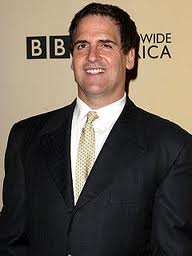 In the second week of my Business Plan Development course, we were required to describe how we intend to incorporate what we have learned from our own research on experts profiled in the previous blog post. After reviewing the history of several experts, I noticed that every part of a business plan is very important; but how you apply the business plan components is of more importance. Potential investors will read my business plan, so it has to be compelling and it has to show the specifics to how my business works. I made a lot of changes to my business plan, however the first specific change that I made to my business plan included reconsidering my company’s analysis. According to the bpexpertsview blog (2011) “The Company Analysis gives a general idea as to what the company is about. It describes how the company is organized, what products and services it offers/will offer, and it goes into further detail on the company's unique qualifications in serving its target markets,” (Lavinsky). The company analysis is also the foundation for every company and it should be clear and concise within a business plan to potential investors who are funding the business.
In the second week of my Business Plan Development course, we were required to describe how we intend to incorporate what we have learned from our own research on experts profiled in the previous blog post. After reviewing the history of several experts, I noticed that every part of a business plan is very important; but how you apply the business plan components is of more importance. Potential investors will read my business plan, so it has to be compelling and it has to show the specifics to how my business works. I made a lot of changes to my business plan, however the first specific change that I made to my business plan included reconsidering my company’s analysis. According to the bpexpertsview blog (2011) “The Company Analysis gives a general idea as to what the company is about. It describes how the company is organized, what products and services it offers/will offer, and it goes into further detail on the company's unique qualifications in serving its target markets,” (Lavinsky). The company analysis is also the foundation for every company and it should be clear and concise within a business plan to potential investors who are funding the business. Within the company analysis, I changed some of services that I will provide to my potential customers. Instead of limiting my company to just event planning and artist management services, I incorporated tour management services as a part of my company’s analysis. Including tour management services as an addition to my company analysis helped my company be more unique and qualified in serving its target market. Adding tour management services for my artists also helps my company to differentiate from other entertainment companies, which creates a competitive advantage for my business. The second component of my business plan that I revised was the Executive Summary. I consider the Executive Summary to be the most important to an investor, because it is the first thing that an investor will read. According to bpexpertsview blog (2011)“The Executive Summary must communicate to the prospective investor the size and scope of the market opportunity, the venture's business and profitability model, and how the resources/skills/strategic positioning of the Company's management team make it uniquely qualified to execute the plan” (Lavinsky, 2010).
The income statement in the financial section of my business plan is just as important to an investor that reads my business plan because the funds requested have be to be realistic, or a potential investor will think they are wasting their time and money. According to Mark Bass, MBA, “The income statement measures the revenues generated by your business against the costs required to generate them.” The ability to consistently generate more revenue than expense (profit) is the ultimate indicator of your company’s viability (Business Plan, 2010).
After reviewing more research from the bpexpertblog and other viral video sources, I noticed that I didn’t go in depth about the scope of my markets opportunity. That could limit the chances of an investor’s interest in my business plan, and it can also limit my company's target market. Moreover, it can limit my chances of getting funds for my business. The industry analysis section of my business plan is important to consider because it will constantly change due to intense competition in the field of entertainment business. I will do research on a consistent basis to be aware of new industry trends such as new technology that can bring new business models and new target demographics. After doing extensive research, I am convinced that every component of my business plan must be solid so an investor will consider possibly investing in it.
Resources
(2010). Business Plan- Income Statement and Investors Interpretation. Retrieved August 27, 2011 from, http://www.youtube.com/watch?v=KHkOxFb8Pbo
(2011). Retrieved August 27, 2011 from, http://bpexpertviews.blogspot.com/
(2011). What Angel Investors Look for in a Company. Retrieved August 27, 2011 from, http://ezinearticles.com/?What-Angel-Investors-Look-For-in-a-Company&id=2395656
Tweet




